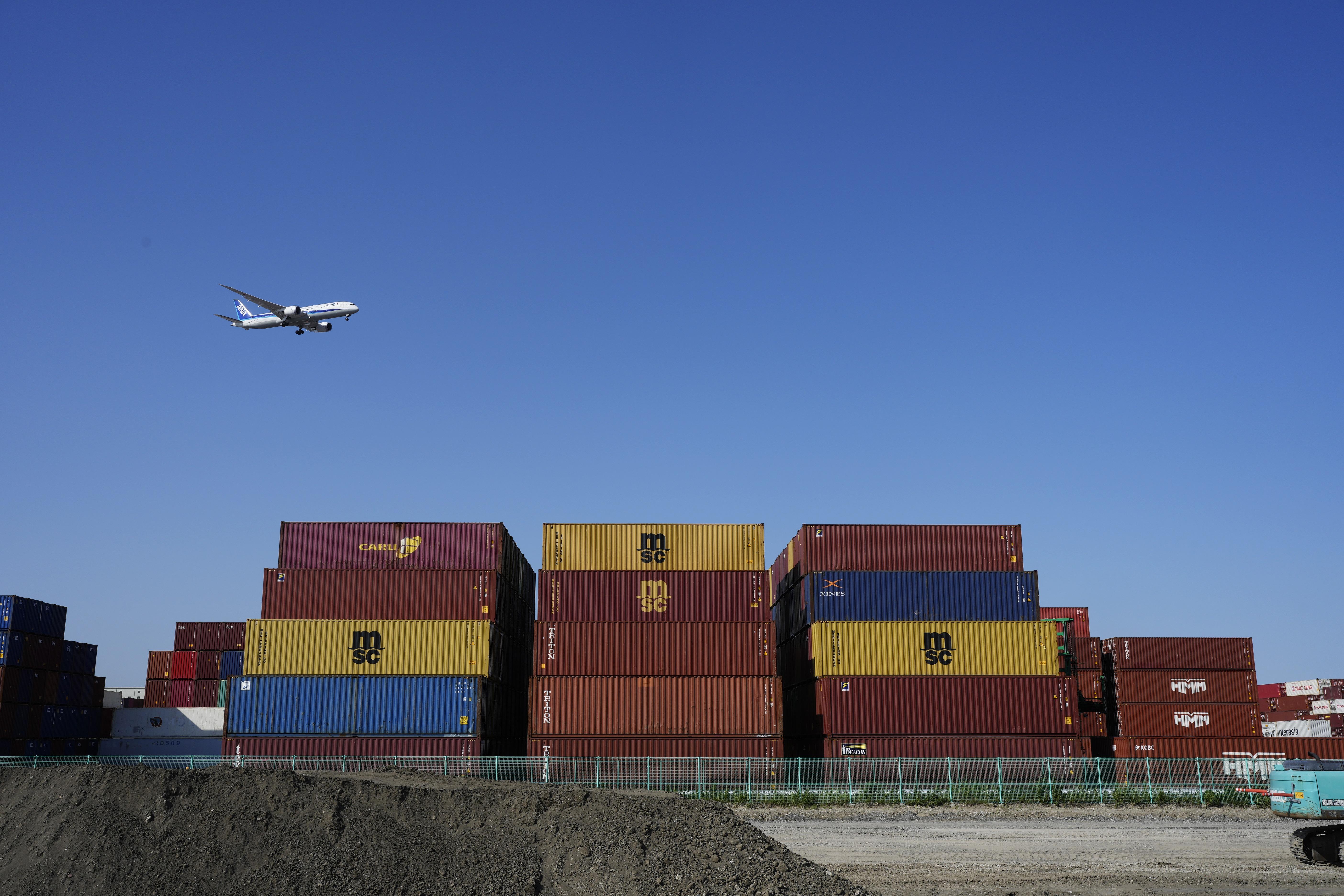 In this June 2, 2022 photo, an airplane flies over containers on its way to Haneda Airport in Tokyo, Japan. (PHOTO / AP)
In this June 2, 2022 photo, an airplane flies over containers on its way to Haneda Airport in Tokyo, Japan. (PHOTO / AP)
TOKYO – Japan's export growth hit its weakest pace in more than two years in April as China-bound shipments slumped amid lingering worries about faltering global economic demand.
Exports rose 2.6 percent in April from a year earlier, finance ministry data showed on Thursday, slower than a 3.0 percent increase expected by economists in a Reuters poll and a 4.3 percent rise in March. It also marked the weakest gain since February 2021 when exports declined 4.5 percent.
The world's No. 3 economy emerged from recession in the first quarter, helped by a boost in consumer spending and tourism following the end of COVID-19 pandemic restrictions, but weak exports are weighing on factory activity and hampering a broader recovery.
READ MORE: Chinese business groups oppose Japan's chip exports revision
Exports have expanded every month since the February 2021 decline, helped in part by a weaker yen that makes Japanese products competitive.
The global economy will slow further in the latter half of this year, so you cannot count on either domestic or external demand, leaving Japan's economy in a soft patch.
Takeshi Minami, Chief Economist, Norinchukin Research Institute
However, gross domestic product data for January-March on Wednesday showed exports slumped 4.2 percent in the period, the first quarterly decline in 18 months.
"Weakening exports will put a drag on capital spending, which may sap domestic demand as consumption lacks strength," said Takeshi Minami, chief economist at Norinchukin Research Institute.
"The global economy will slow further in the latter half of this year, so you cannot count on either domestic or external demand, leaving Japan's economy in a soft patch."
By destination, Japanese exports to China, the country's largest trading partner, dropped 2.9 percent in April year-on-year, dragged by declines in cars, car parts and steel shipments. It followed a 7.7 percent decline in March and marked a fifth straight month of falls. Likewise, Japan's shipments to Asia fell 6.3 percent year-on-year in April, down for a fourth straight month.
US- and European Union-bound shipments grew 10.5 percent and 11.7 percent year-on-year in April, respectively, led by a rebound in cars and car parts as supply constraints eased.
ALSO READ: China concerned about Japan's planned export restrictions
Imports fell 2.3 percent in April, much bigger than the median estimate for a 0.3 percent decrease and the first annual decline in 27 months, as the base effects of surging energy costs and a weakening yen ran their course.
The trade balance came to a deficit of 432.4 billion yen ($3.20 billion), narrower than the median estimate for a 613.8 billion yen shortfall.


